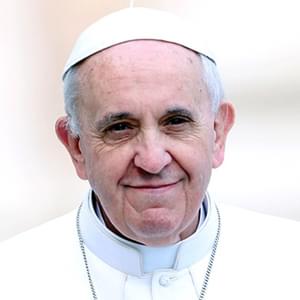
Bernice King, the youngest daughter of Martin Luther King, Jr., encouraged New Hampshire to repeal the death penalty, saying that even though she lost her father and grandmother to murder, “I can’t accept the judgment that killers need to be killed, a practice that merely perpetuates the cycle of violence.” She called the death penalty “unworthy of a civilized society,” and warned that “retribution cannot light the way to the genuine healing that we need in the wake of heinous acts of violence.” She also pointed to the number of people freed from death row after being exonerated as “evidence that mistakes can and do get made in a justice system run by fallible human beings.” She invoked her father’s message of nonviolence, quoting from his Nobel Prize acceptance speech, “‘Nonviolence is the answer to the crucial political and moral questions of our time: the need for man to overcome oppression and violence without resorting to oppression and violence.’ ” Read her op-ed below.
Another View — Bernice A. King: NH can create a better world by ending state-sanctioned killing
by BERNICE A. KING
Having lost my father and my grandmother to homicide, I can well understand the hurt, anger and frustration that lead some people to support the death penalty. Yet I can’t accept the judgment that killers need to be killed, a practice that merely perpetuates the cycle of violence.
Yes, we want to see truth and justice prevail. But retribution cannot light the way to the genuine healing that we need in the wake of heinous acts of violence. Instead, state-sponsored killing sets a dehumanizing example of brutality that encourages more violence.
Allowing the state to kill its citizens for any reason diminishes our humanity and sets a sadistic and dangerous precedent that is unworthy of a civilized society. Every execution makes our community a little less humane and carries us further from achieving a peaceful society in which we can all take pride.
There are other reasons, as well, to move beyond the death penalty.
Legal scholars from three universities recently surveyed studies of racial disparities in the use of capital punishment and observed: “The most consistent and robust finding in this literature is that even after controlling for dozens and sometimes hundreds of case-related variables, Americans who murder Whites are more likely to receive a death sentence than those who murder Blacks.”
We cannot get around the evidence that our nation’s application of the death penalty is racially charged.
Nor can we avoid the fact that innocent people have been sentenced to death. That 143 people have been exonerated and released from death row since 1973 is evidence that mistakes can and do get made in a justice system run by fallible human beings. Surely we must hold our judicial system to a higher standard than one which allows an irreversible miscarriage of justice to occur.
My father, Martin Luther King Jr., always preached that evil must be counteracted with love, even in response to extreme violence. As he said in his Nobel Prize acceptance speech, “Nonviolence is the answer to the crucial political and moral questions of our time: the need for man to overcome oppression and violence without resorting to oppression and violence. Man must evolve for all human conflict a method which rejects revenge, aggression and retaliation.” Surely there is no place for the death penalty in the world he dreamed of.
My mother, too, was a staunch death penalty opponent. “Although I have suffered the loss of two family members by assassination,” she wrote, “I remain firmly and unequivocally opposed to the death penalty for those convicted of capital offenses. An evil deed is not redeemed by an evil deed of retaliation. Justice is never advanced in the taking of a human life. Morality is never upheld by legalized murder.”
New Hampshire, the last state to declare a holiday in my father’s honor, can be the next state to repeal the death penalty and bring us closer to “the beloved community” of which he dreamed.
- — - — -
Bernice A. King, the youngest daughter of Martin Luther King Jr. and Coretta Scott King, is an ordained minister, attorney and the CEO of the Martin Luther King Jr. Center for Nonviolent Social Change.
(B. King, “Another View — Bernice A. King: NH can create a better world by ending state-sanctioned killing,” New Hampshire Union Leader, op-ed, January 17, 2014). See Religion and Recent Legislation. New Hampshire conducted legislative hearings on January 16 on a bill to repeal the death penalty.
Religion
Dec 17, 2024
Indiana’s First Execution in 15 Years Raises Serious Constitutional Concerns
Recent Legislative Activity
Oct 07, 2024

